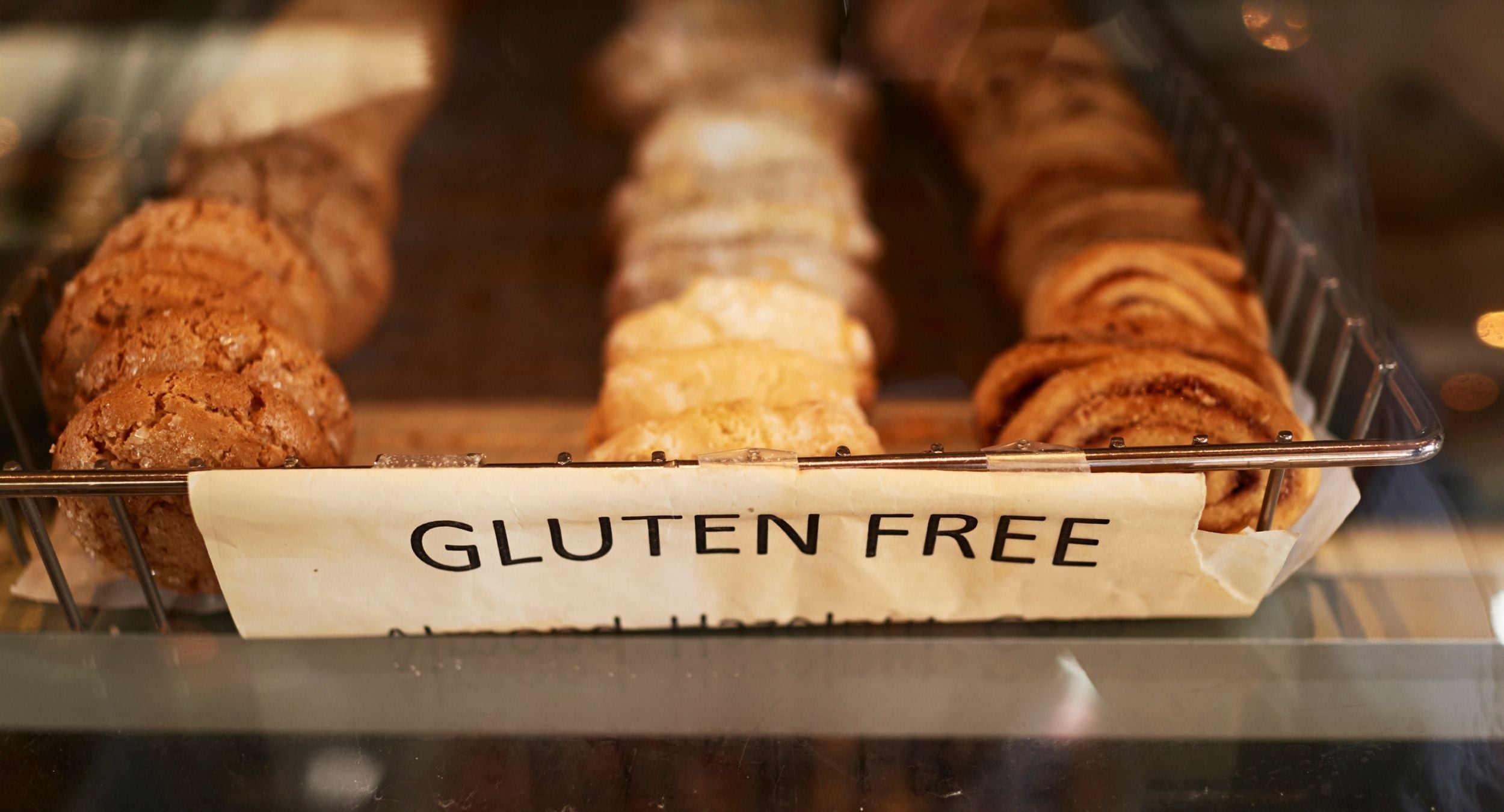Are You Missing These 6 Key Nutrients in Your Gluten-Free Diet?

(Photo: GettyImages)
If you’re following a gluten-free diet, know that you aren’t alone — a whopping one-third of adults in America have said they’re trying to avoid or reduce gluten. And even though less than 1 percent of the U.S. population has celiac disease or a wheat allergy, more and more people are jumping on the gluten-free train than ever before because of its potential for enhancing athletic performance, weight loss and other outcomes.
Following a gluten-free diet means that you are completely eliminating foods that contain gluten, including foods that contain wheat, barley, rye and triticale (a cross between wheat and rye). This means that most breads, crackers, cookies and even beers are off the table. Instead, many gluten-free followers focus on fruits, veggies, legumes, beans and many other naturally gluten-free items. Manufacturers also provide gluten-free versions of breads, crackers and other traditionally gluten-laden foods.
The end result? Missing key nutrients on your gluten-free diet, thanks to the sheer effect of completely eliminating certain foods. If you have adopted a gluten-free lifestyle, here are six nutrients you need to focus on to make sure your diet is well-rounded.
1. Iron
Iron deficiency is one of the most common nutritional inadequacies in those who follow a gluten-free diet. In fact, iron-deficiency anemia is one of the most common outcomes in those who have celiac disease, having been found in almost 46 percent of cases.
If you have iron deficiency, you may feel chronically tired, have a poor appetite and have weak nails. Focusing on foods like lean beef and dark meat chicken can help keep healthy levels in check. Alternatively, supplementation can be considered if iron deficiency is already detected — be sure to discuss this route with your doctor first.
2. Folate
Maintaining a healthy folate status is incredibly important for women during their reproductive years because this nutrient plays a key role in preventing birth defects during pregnancy.
Folate deficiency is quite rare in the U.S., thanks to the Food and Drug Administration’s requirement to fortify many grains with folic acid, including wheat flour–based products, semolina and wheat germ. Unfortunately, many grains that do not contain gluten, like amaranth, quinoa and rice flour, are not required to be fortified, leaving those who avoid gluten missing the addition of this important nutrient.
Folate deficiency appears in 3.6 percent of people with celiac disease, as compared to 0.3 percent in the general population, possibly because of lower intake and absorption challenges.
Being aware of this major fortification difference between certain grains when following a gluten-free diet can help fill certain gaps. Including foods like 100 percent orange juice, green leafy veggies and beets can help meet your folate needs, too.
3. Vitamin D
Since almost 50 percent of the United States’ population is deficient in vitamin D, it is safe to assume that people who avoid gluten can benefit from a vitamin D boost.
Vitamin D deficiency may lead to weaker bones, a less-strong immune system and an increased risk for certain cancers, among many other potential outcomes.
This important nutrient is found in foods like eggs, salmon and certain mushrooms — all foods that easily fit into a gluten-free lifestyle. Focusing on these foods, exposing your body to direct sunlight when possible, and supplementing are all ways that you can reduce your risk of a vitamin D deficiency.
4. Vitamin B6
Vitamin B6 is incredibly important when we want to support our nervous and immune system health. And when evaluating the dietary intake of people who avoid gluten versus those who include it, researchers found that the gluten-free group had a lower vitamin B6 intake.
Vitamin B6 is found in foods like meats, soy, bananas and fish. Including foods that contain this nutrient in a gluten-free diet can be relatively simple with a little effort. Alternatively, consider a supplement to make sure you are not missing key nutrients on your gluten-free diet.
5. Selenium
Selenium is an important nutrient that helps keep the thyroid functioning properly. Although selenium is found in many gluten-free foods, including Brazil nuts and seafood, carbohydrate foods do contribute to the overall intake of this important nutrient. And selenium deficiency is particularly remarkable because a gluten-free diet leads to its absence in cereal foods such as wheat, which is a source of selenium.
Gluten-free alternatives to breads, muffin mixes and cookies range when it comes to their selenium content. And the more popular bases of these options — corn, rice and buckwheat — are lower in selenium versus less-popular choices, like amaranth and teff-based mixes and products.
6. Vitamin B12
Vitamin B12 is a key nutrient that is important for supporting red blood cell formation, nerve function and a slew of other factors in our body. And among those who follow a gluten-free diet, data shows that a deficiency was detected in up to 30 percent of people for vitamin B12.
Vitamin B12 can be found in foods like beef, fish, nutritional yeast and yogurt. Levels of vitamin B12 can be easily evaluated via a simple blood test. If you are shown to have a deficiency, your doctor may suggest supplementation.